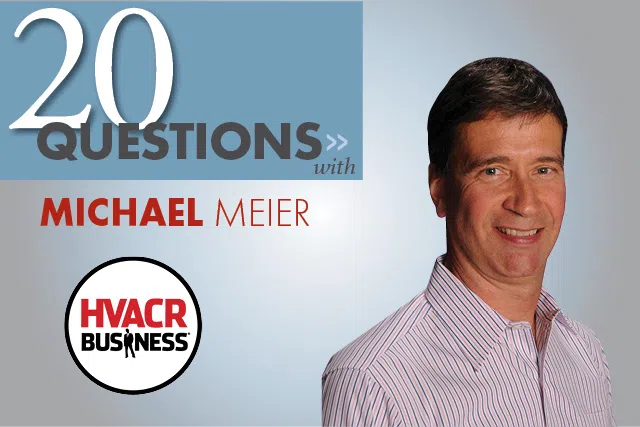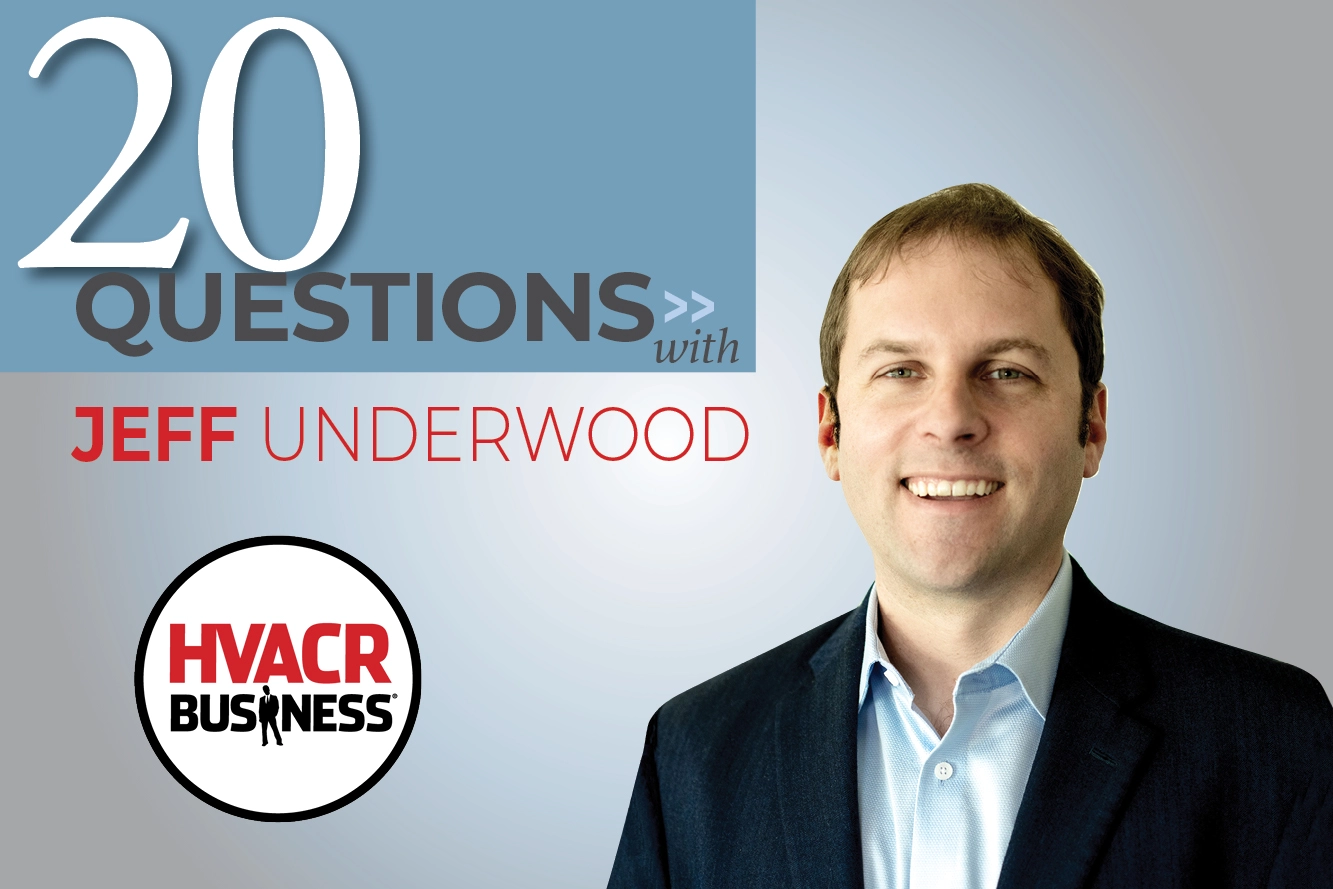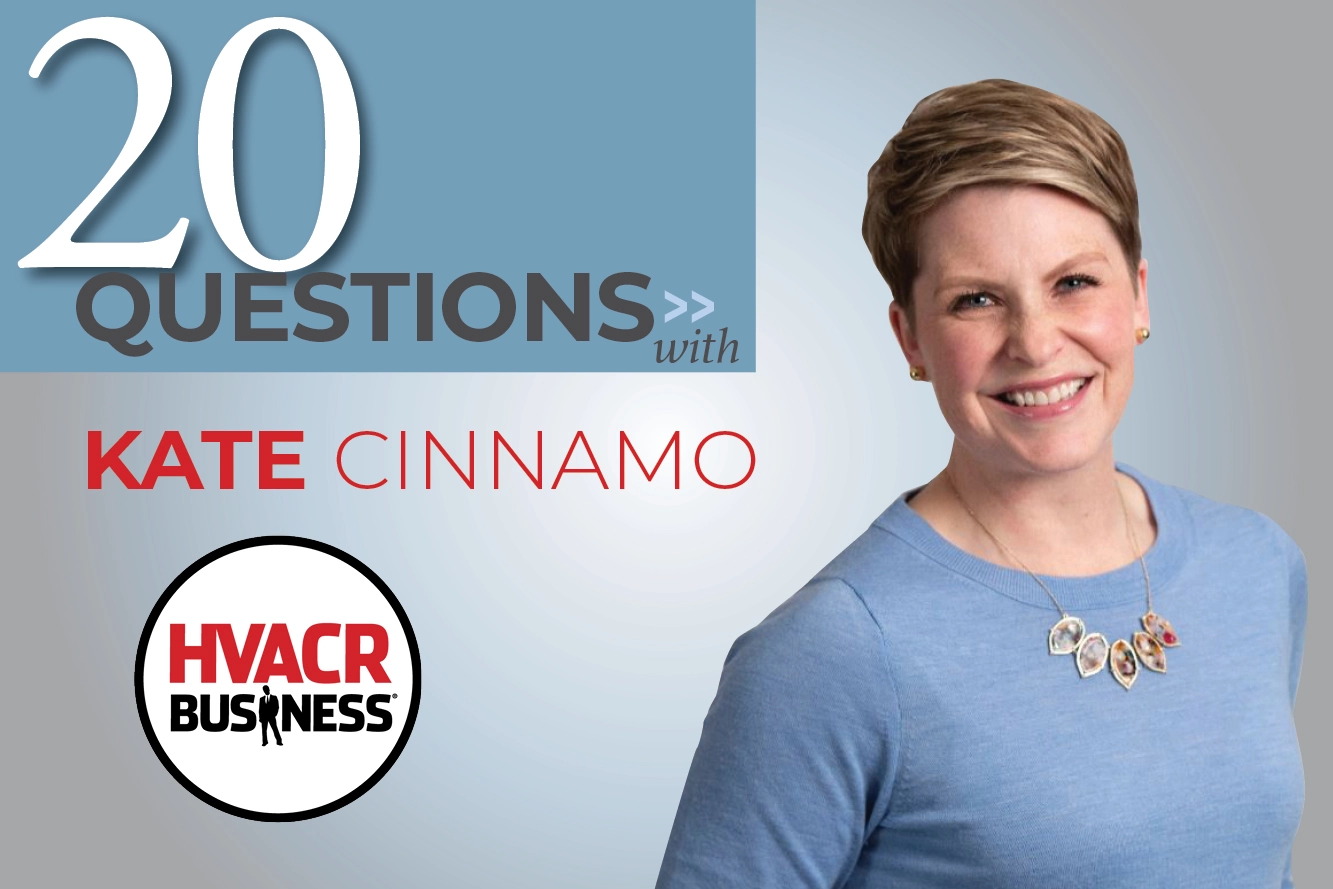HVACR Business Publisher Terry Tanker recently met with Michael Meier, vice president and COO of Meier Supply Co., Inc. Meier, who currently serves as president of HARDI, discusses growing up in the family business, training the industry to be better and the advancement of industry technology.
1. I understand you're a competitive cyclist — how did you get involved in that sport?
About 10 years ago I started competing in triathlons and I immediately developed a passion for it. I love the competitiveness.
2. What's the best bike you own?
It's a Fuji Transonic aero bike.
3. What's your biggest fear road racing?
That I'm going to die and my wife's going to sell my bikes for what I told her I paid for them! (Laughs) Actually, she won't come see me race because she thinks it's nuts for a 55-year-old to be out there. Racers know it's not "if" you're going to fall but "when." So, like everyone, that's my fear.
4. What are the origins of Meier Supply?
My grandfather started Meier supply in 1957 when he was 50 years old along with my father, who was 21 at the time.
5. Entrepreneurs don't have age limits do they?
Exactly! He saw an opportunity and took it. He worked for a company in Binghamton called WA Case and son, they were a supplier of carpet, electrical, plumbing and refrigeration equipment. My grandfather managed the refrigeration division and when it was announced the company was going out of business, he was able to buy it.
6. You're a third generation business — are there other family members working at Meier Supply?
Yes. My brother Frank and sister Kim started in the business about six years ahead of me, followed by my brother Mark then sister Bernadette. Additionally, a cousin, a nephew, brother in-law and two daughters also work here. We all came into the business at different times and at different levels which I think helped with the family working together.
7. How has the company grown to accommodate such a large family presence?
My grandfather had only one branch and when my father took over we started to expand and grew to six locations. We expanded again under my brother Frank, and now we have 17 locations. I can see the light at the end of the tunnel, and so can my brothers, and we're trying to strengthen the foundations so that the next generation can continue on and take it to the next level.
8. Why have things worked out so well up to this point?
Our house was 100 yards from our first store so we all got a chance to hang around and we were lucky enough to watch everyone. My dad had an incredible work ethic — he was the kind of guy who led by example.
9. What were the challenges when your father handed off the business, and will they be the same for you and your brother?
Dad felt comfortable walking away because the business and his team of kids were clicking. Looking at it now, it's about making sure the next generation and "the team" are set in place to continue to the next level. We're starting to think about this now and have time to get everything in place.
10. How did you get your start?
I went to college to be a refrigeration and air conditioning mechanic. I always liked to fix things. So, I didn't join the company right away — I worked for an HVACR company as a field mechanic for five years. My dad offered me a position as an inside salesperson at the main branch, which appealed to me because I could work alongside my older brother Frank. I made the switch from one side of the counter to the other and it made me realize how little I knew about the HVACR Industry.
11. So, you enjoyed being on the sales side?
Actually no, I really enjoyed being a mechanic. After six months, I gave my dad my notice … I said, "Dad, I'm going back to work with the wrenches — that's what I love to do." He said, "Hey, if that's what's going to make you happy go ahead." Then, a week into my two weeks' notice, my brother Frank talked me into staying. He gave me some additional duties and responsibilities. I stayed and learned a lot about the business, which I am grateful for now.
12. How has the company evolved over the years?
In 1957, we were strictly refrigeration and we stayed that way for probably 30 years. We didn't know any HVAC. Today, refrigeration is about 50 percent of our business, HVAC is about 40 percent and the controls division is about 10 percent.
13. Can you tell us about Meier University?
We actually have quite an extensive training program and recently hired a second trainer. We train contractors and employees. We develop a curriculum in each branch location based on the customers' needs. With 17 locations spread out over New York and Pennsylvania, the training covers everything from basic to complex refrigeration, HVAC or controls.
14. Why have you made the investment?
We believe it's always been a huge part of our success. We want to build that relationship with the customers, and the bottom line is we want to be able to help them make a larger profit. Our training even expands into financial training for our customers.
15. Can you tell us more about that aspect of your training?
We offer business training via a classroom setting, or our CFO is available to do in-depth one-on-one training. If a customer decides they want to share financial statements and have us drill down to help them, we'll do it. As you know, many owners start as mechanics and don't have a business background. We can help them.
16. Offering those services has to help build customer trust, right?
When we talk to our team, much of our focus is on helping contractors with their pain points. They may need help finding additional employees, adding different segments to their business or maybe problems with inventory. We want to build and develop whatever program we have to, to help them.
17. Has being a resource always been part of the Meier Supply business plan?
Yes. We've always wanted our customers to feel like Meier Supply is their "go to" company. We do business with them because they go to bat for us. We trust them and they go the extra mile to help us.
18. At the HARDI Annual Meeting there was a focus on the industry's workforce shortage — what are your thoughts?
As a company we've looked at this problem and as part of our leadership training, a requirement for participants is to identify a career day within their branch area. Then, schedule and present a presentation about our industry and all of the great opportunities available.
19. Is it simply a technician shortage or a shortage across the board?
The mechanic shortage is the most painful for the entire industry, but it's definitely across the board. For example, distributors are always looking for good quality people to add to our operations.
20. What's the largest opportunity moving into the future?
It has to be technology and energy savings. Look at the smart phone, it's only been around five years or so. What's next and how will our industry integrate that into our businesses? Look at products such as controls and VRF … they're only going to grow. These products have jumped light years in just the last five years and they will continue to get better.






